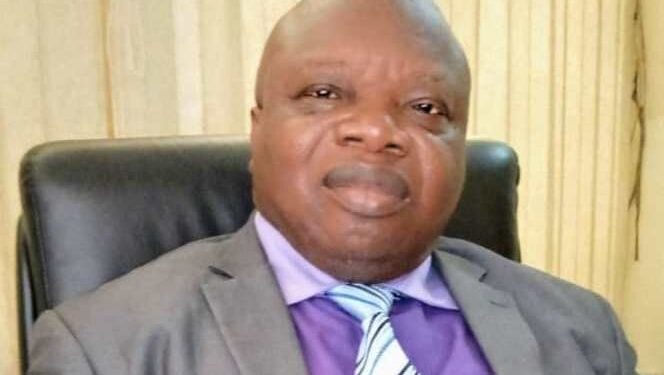By Hassan Osman Kargbo
At the 16th Session of the Implementation Review Group in Vienna- Austria, the Deputy Commissioner of the Anti-Corruption Commission (ACC) of Sierra Leone, Augustine Foday Ngobie, has reaffirmed the country’s unwavering commitment to fighting corruption and recovering stolen assets.
In his address to global anti-corruption experts, Ngobie emphasized the substantial progress Sierra Leone has made in strengthening its anti-corruption framework, including asset recovery mechanisms and whistle-blower protections.
He credited the leadership of President Julius Maada Bio and the proactive efforts of the ACC, under Commissioner Francis Ben Kaifala, for the achievements in combating graft over the last six years.
Ngobie provided an overview of the ACC’s legal foundation, citing the Anti-Corruption Act of 2008 (amended in 2019), which empowers the Commission to prevent, investigate, prosecute, and recover assets obtained through corrupt practices.
He underscored the importance of the United Nations Convention Against Corruption (UNCAC), particularly Chapter V, which classifies asset recovery as a fundamental principle. “Sierra Leone has gone beyond just legal provisions. We have intensified asset recovery efforts within the country,” Ngobie stated. “Through our non-conviction-based asset recovery strategy, we have recovered over $3 million in cash, as well as vehicles, houses, motorbikes, and other assets valued far beyond the cash recoveries.”
He explained that such a strategy is invoked in cases where prosecution may not be feasible but where significant public funds or assets are at risk, the approach including restitution, forfeiture, and cooperation agreements with offenders to ensure the return of stolen wealth; and that offenders are also required to pay an interest of at least 10 percent on the misappropriated funds, and public officers found guilty face a minimum three-year ban from office.
Ngobie highlighted the crucial role of whistle-blowers in the anti-corruption drive. He noted that stolen assets are often concealed, making public participation essential in uncovering hidden wealth.
Sierra Leone’s legislation provides strong protections for whistle-blowers and witnesses, including anonymity, legal immunity, and safeguards against retaliation.
“Our Witness and Whistle-blower Protection Policy ensures the safety and confidentiality of informants,” he said. “We also offer financial rewards of 10 percent of recovered funds to individuals who provide credible information leading to successful prosecutions or asset recoveries.”
The Deputy Commissioner reaffirmed the government’s commitment to meeting international anti-corruption standards, as outlined in UNCAC Articles 32 and 33.
He called on global partners to enhance cooperation in the fight against cross-border corruption and illicit financial flows.
Ngobie concluded by reiterating Sierra Leone’s determination to tackle corruption at all levels and to ensure that public resources are used for the benefit of the people. “We will continue to strengthen our laws, policies, and enforcement strategies to maintain transparency and accountability,” he assured the audience.
The ACC’s strong stance on corruption has earned Sierra Leone recognition on the international stage, with the country making notable strides in governance and integrity rankings.
As discussions continue at the Vienna conference, Sierra Leone’s approach to asset recovery and whistle-blower protection is being hailed as a model for other nations striving to combat corruption effectively.











